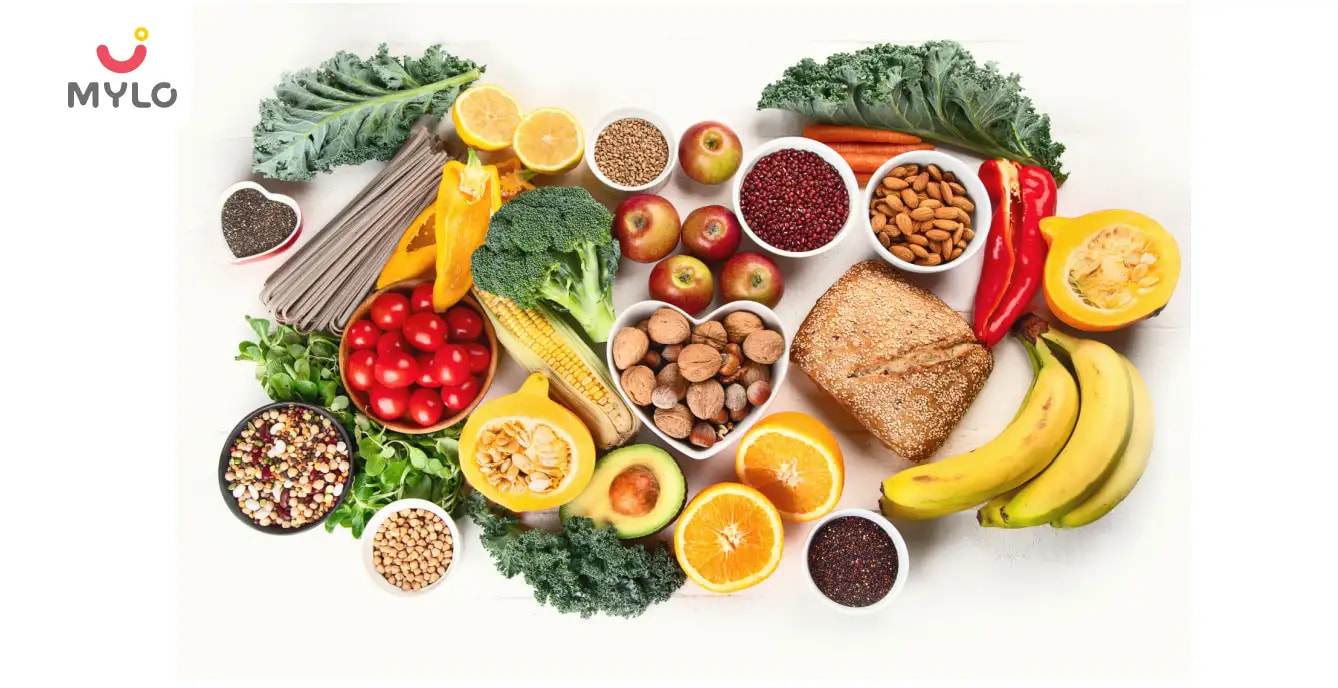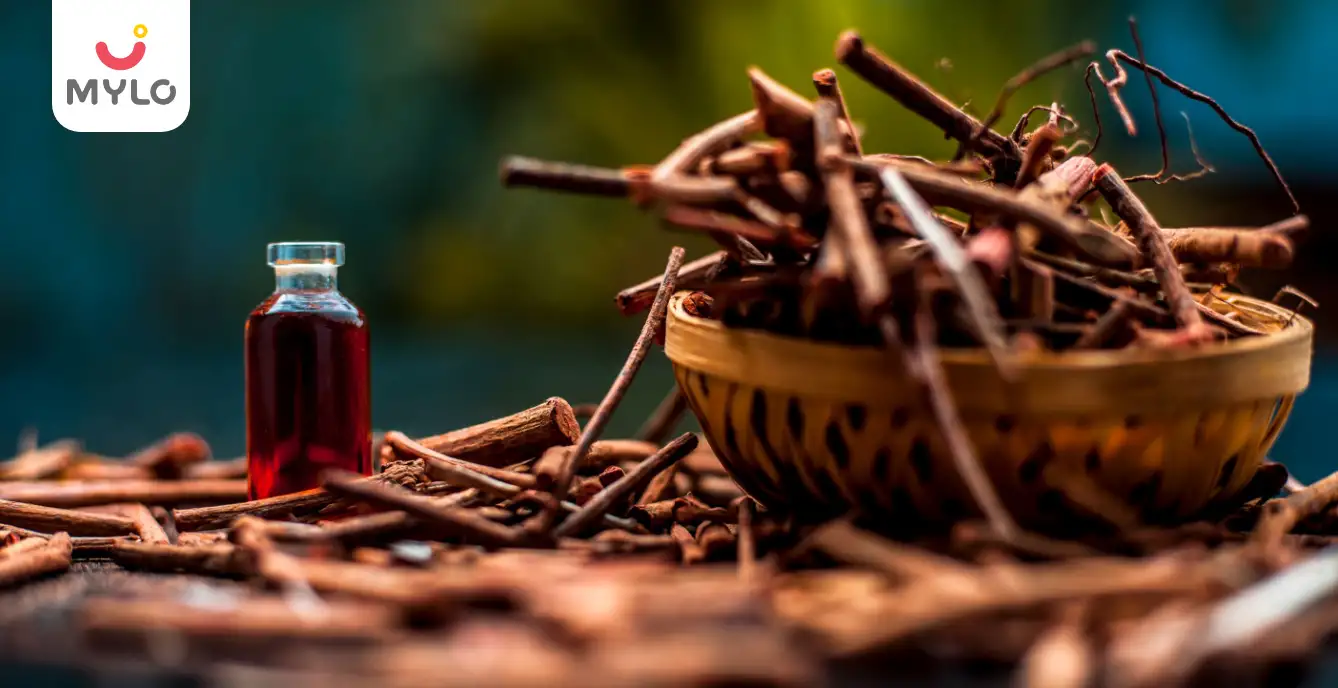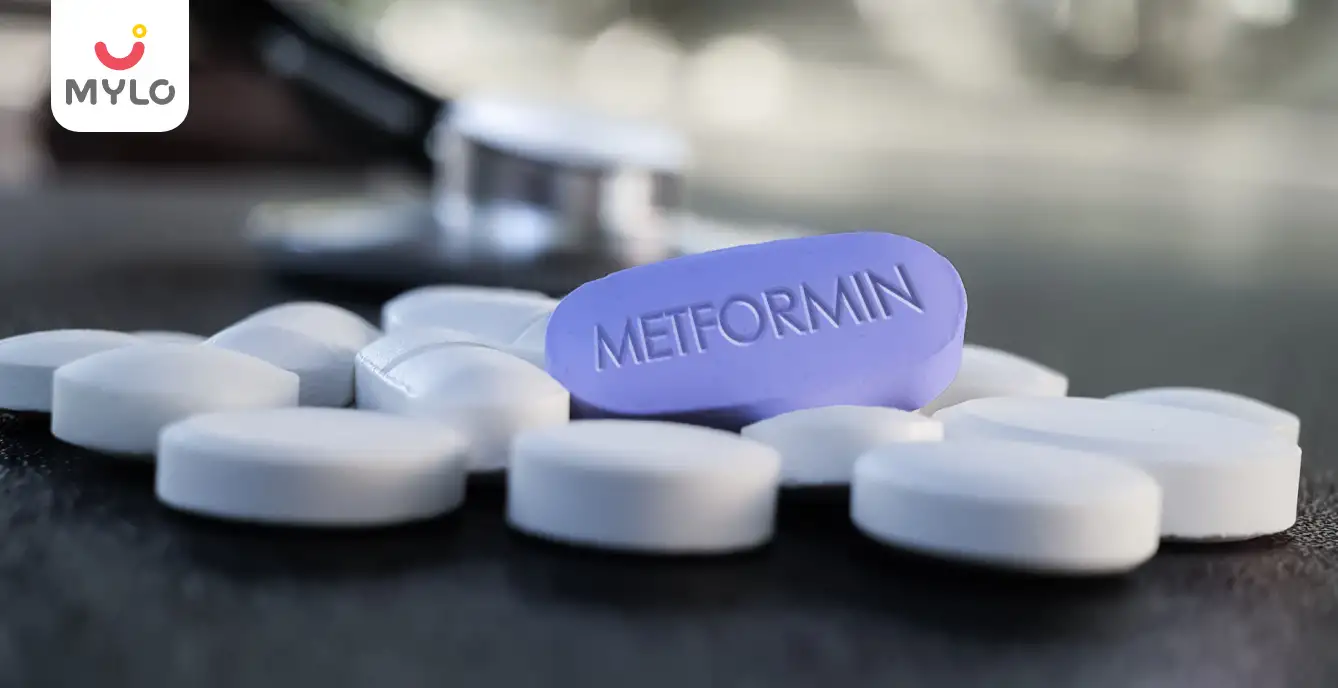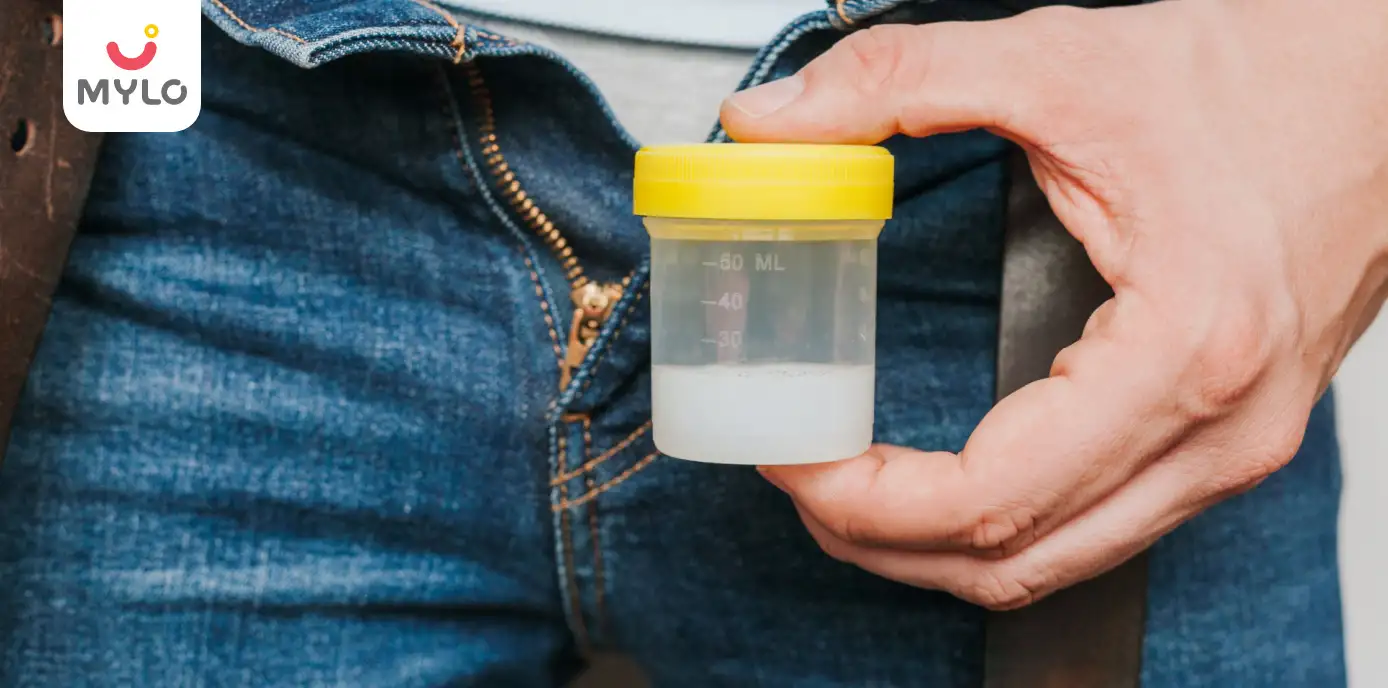Home

PCOS & PCOD

PCOS Food List: Your Guide to Eating Smart with PCOS
In this Article

PCOS & PCOD
PCOS Food List: Your Guide to Eating Smart with PCOS
Updated on 1 September 2023



Medically Reviewed by
Dr. Shruti Tanwar
C-section & gynae problems - MBBS| MS (OBS & Gynae)
View Profile

Living with PCOS can be challenging, especially when symptoms like weight gain, hormonal imbalances, and insulin resistance wreak havoc on your day-to-day life. Nutrition plays a pivotal role in helping women living with PCOS take charge of their health and lives. With a curated PCOS food list in your PCOS arsenal, you can unlock the power of nutrition to manage Polycystic Ovary Syndrome.
In this comprehensive guide, we will navigate the world of food, understand the role of diet in PCOS management and explore the best foods for PCOS as well as the worst foods for PCOS to help you take charge of your diet and life.
How Does Diet Impact PCOS?
Diet plays a crucial role in managing PCOS symptoms and promoting overall health. The foods you consume can have a significant impact on your hormone levels, insulin resistance, and inflammation, all of which are closely linked to PCOS. By making smart dietary choices, you can help alleviate symptoms and improve your quality of life.
What are the Best Foods for PCOS?
Here is a PCOS food chart with the best foods to consume when you have PCOS:
1. Leafy Greens
Spinach, kale, and other leafy greens are rich in essential nutrients like iron, calcium, and vitamins A and C. They are also low in calories and high in fiber, which can help regulate blood sugar levels and promote weight loss.
2. Berries
Blueberries, strawberries, and raspberries are packed with antioxidants and fiber. They have a low glycemic index, meaning they won't cause a rapid spike in blood sugar levels. Berries also offer anti-inflammatory properties, which can help reduce insulin resistance.
3. Fatty Fish
Salmon, mackerel, and sardines are excellent sources of omega-3 fatty acids, which have been shown to reduce inflammation and insulin resistance. Including fatty fish in your diet can help improve hormone balance and reduce the risk of heart disease.
4. Nuts and Seeds
Almonds, walnuts, chia seeds, and flaxseeds are rich in healthy fats and fiber. They can help stabilize blood sugar levels, reduce inflammation, and promote weight loss. Including a handful of nuts or seeds in your daily diet can have numerous health benefits.
5. Lean Proteins
Opt for lean sources of protein like chicken breast, turkey, tofu, and legumes. Protein is essential for hormone production and can help keep you feeling full for longer. Including protein in your meals can also help stabilize blood sugar levels and promote weight management.
6. Whole Grains
Switch to whole grains like brown rice, quinoa, and whole wheat bread instead of refined grains. Whole grains are rich in fiber, which slows down the absorption of sugar into the bloodstream. They can help regulate blood sugar levels and improve insulin sensitivity.
7. Probiotic-Rich Foods
Yogurt, kefir, and fermented foods like sauerkraut and kimchi contain beneficial bacteria that can improve gut health. A healthy gut microbiome is crucial for hormone balance and overall well-being. Including probiotic-rich foods in your diet can support digestive health and reduce inflammation.
Besides consuming foods to cure PCOS or rather manage it, you can also add dietary supplements like Myo-inositol and herbal drinks like PCOS tea to your daily routine. Mylo offers non-hormonal solutions to combat the symptoms associated with PCOs like weight gain, insulin resistance, acne, irregular periods, and mood swings.
Mylo’s PCOS tea fortified with Shatavari, Manjishtha, Shankhpushpi and Chamomile along with Myo-inositol chewable tablets for PCOS & PCOD can help you deal with PCOS effectively.
Read More About : Myo-inositol
What are the Worst Foods for PCOS?
Here is a PCOS food list to avoid consisting of PCOS foods to avoid:
1. Processed Foods
Highly processed foods like fast food, packaged snacks, and sugary drinks should be avoided as much as possible. They are often high in unhealthy fats, refined carbohydrates, and added sugars, which can worsen PCOS symptoms and contribute to weight gain.
2. Sugary Treats
Foods and beverages with a high sugar content, such as candies, pastries, and sodas, can cause a rapid spike in blood sugar levels. This can lead to increased insulin production and worsen insulin resistance, a common issue in PCOS.
3. Refined Grains
White bread, pasta, and rice have been stripped of their fiber and nutrients during processing. They can cause a quick rise in blood sugar levels and contribute to insulin resistance. Opt for whole grain alternatives instead.
4. Dairy Products
While dairy can be a part of a healthy diet, some women with PCOS may have sensitivities to dairy products. In such cases, it is advisable to limit or avoid dairy consumption as it can contribute to inflammation and hormonal imbalances.
5. Red Meat
High consumption of red meat, especially processed red meat, has been linked to an increased risk of insulin resistance and inflammation. It is recommended to choose lean protein sources like poultry, fish, and plant-based proteins instead.
6. Highly Caffeinated Beverages
Excessive consumption of caffeinated beverages like coffee and energy drinks can disrupt hormone levels and contribute to adrenal stress. Limiting caffeine intake can help promote hormone balance and reduce PCOS symptoms.
7. Alcohol
Alcohol can affect liver function and disrupt hormone metabolism. It can also contribute to weight gain and worsen insulin resistance. It is advisable to limit alcohol consumption or avoid it altogether when managing PCOS.
You may also like : PCOS Self Care: How to Nurture Your Body and Mind
Things to Keep in Mind When Preparing Your PCOS Food List
While preparing a PCOS food chart for yourself, you should keep the following things in mind:
1. Balance Your Macronutrients
Aim to include a balance of carbohydrates, proteins, and fats in your meals. This can help regulate blood sugar levels and promote hormone balance.
2. Choose Low-Glycemic Index Foods
Foods with a low glycemic index release sugar into the bloodstream slowly, preventing blood sugar spikes. Opt for whole fruits, vegetables, and whole grains.
3. Prioritize Fiber
Include plenty of fiber-rich foods in your diet, such as fruits, vegetables, legumes, and whole grains. Fiber can help regulate blood sugar levels, promote weight loss, and improve gut health.
4. Stay Hydrated
Drink an adequate amount of water throughout the day to support overall health and promote proper digestion. Avoid sugary beverages and opt for water, herbal tea, or infused water instead.
5. Mindful Eating
Practice mindful eating by paying attention to your body's hunger and fullness cues. This can help prevent overeating and promote healthy weight management.
6. Meal Planning
Plan your meals in advance to ensure you have nutritious options readily available. This can help you avoid unhealthy food choices and make sticking to a PCOS-friendly diet easier.
7. Seek Professional Guidance
If you are unsure about what foods to include in your PCOS food list or need personalized advice, consider consulting a registered dietitian or a healthcare professional.
You may also like : PCOS Natural Treatment: The Ultimate Guide to Natural Remedies for PCOS
Are There Any Foods to Cure PCOS?
While there is no specific food that can cure PCOS, adopting a healthy lifestyle, including a balanced diet and regular physical activity, can help manage symptoms and improve overall well-being. It is essential to focus on nourishing your body with nutrient-dense foods and making sustainable lifestyle changes rather than relying on a single food or remedy.
How to Stick to a PCOS Food Chart?
Sticking to a PCOS dietary chart can be challenging, especially when faced with temptations or a busy schedule. Here are some tips to help you stay on track:
1. Set Realistic Goals
Start by setting realistic goals and making small changes to your diet. Trying to overhaul your eating habits overnight can be overwhelming and unsustainable.
2. Meal Prep
Prepare your meals and snacks in advance to ensure you have healthy options readily available. This can help prevent impulsive food choices and save time during busy days.
3. Find Healthy Alternatives
Look for healthier alternatives to your favorite foods. For example, swap sugary desserts for a bowl of mixed berries or replace refined grains with whole grain options.
4. Practice Mindful Eating
Pay attention to your body's hunger and fullness cues. Eat slowly and savor each bite, focusing on the taste and texture of your food. This can help prevent overeating and promote a healthy relationship with food.
5. Stay Accountable
Share your goals and progress with a supportive friend or family member. Having someone to hold you accountable can help you stay motivated and committed to your PCOS food list to avoid.
6. Reward Yourself
Celebrate your achievements along the way. Treat yourself to non-food rewards like a relaxing bath, a new book, or a massage. This can help reinforce positive behaviors and keep you motivated.
Final Thoughts
Creating a PCOS food list that focuses on nutrient-dense, whole foods can have a significant impact on managing PCOS symptoms and improving overall health. Remember to consult with a healthcare professional or registered dietitian for personalized advice and guidance. By making smart dietary choices, practicing mindful eating, and adopting a healthy lifestyle, you can take control of your PCOS and live a vibrant, fulfilling life.
References
1. Xenou M, Gourounti K. (2021). Dietary Patterns and Polycystic Ovary Syndrome: a Systematic Review. Maedica (Bucur).
2. Barrea L, Frias-Toral E, Verde L, Ceriani F, Cucalón G, Garcia-Velasquez E, Moretti D, Savastano S, Colao A, Muscogiuri G. (2021). PCOS and nutritional approaches: Differences between lean and obese phenotype. Metabol Open.





Medically Reviewed by
Dr. Shruti Tanwar
C-section & gynae problems - MBBS| MS (OBS & Gynae)
View Profile


Written by
Anandita Sharma
Drawing on more than a decade of expertise in administration, Anandita Sharma currently serves as a content operations e
Read MoreGet baby's diet chart, and growth tips

Related Articles
Why Protein Is Essential During Pregnancy: Benefits of Protein-Rich Snacks
Top 100 Baby Names for Boys and Girls 2026 Edition: The Ultimate Trending & Meaningful Name Guide
The Ultimate Guide to the Best Romantic Web Series on OTT for Couples
Best Indian Crime Web Series Based on True Stories: The Ultimate Binge-Watch Guide (2026)
Related Questions
Hello frnds..still no pain...doctor said head fix nhi hua hai..bt vagina me pain hai aur back pain bhi... anyone having same issues??

Kon kon c chije aisi hai jo pregnancy mei gas acidity jalan karti hain... Koi btayega plz bcz mujhe aksar khane ke baad hi samagh aata hai ki is chij se gas acidity jalan ho gyi hai. Please share your knowledge

I am 13 week pregnancy. Anyone having Storione-xt tablet. It better to have morning or night ???

Hlo to be moms....i hv a query...in my 9.5 wk i feel body joint pain like in ankle, knee, wrist, shoulder, toes....pain intensity is high...i cnt sleep....what should i do pls help....cn i cosult my doc.

Influenza and boostrix injection kisiko laga hai kya 8 month pregnancy me and q lagta hai ye plz reply me

RECENTLY PUBLISHED ARTICLES
our most recent articles

Ayurveda & Homeopathy
Manjistha: Ayurveda's Best-Kept Secret for Health and Beauty

PCOS & PCOD
Metformin for PCOS: How This Medication Can Help Regulate Hormonal Imbalances

Conception
5 Tips on How to Get Pregnant When You Are Fat

Medications
Do Antibiotics Affect Fertility: Debunking Common Myths and Misconceptions

Fertility
Disadvantages of Releasing Sperm Daily: Debunking Common Myths

Medical Procedures
Varicocele Surgery Cost: What You Need to Know Before You Go Under the Knife
- Testicular Pain: Don't Ignore, Know When to Seek Medical Attention
- PCOS with Regular Periods: Understanding the Symptoms and Implications
- Bulky Uterus: What You Need to Know About this Common Gynecological Issue
- Mylo Baby Wipes Review
- PCOS Treatment in Ayurveda: The Ultimate Guide to Natural Treatment Options
- PCOS Acne: The Ultimate Guide to Causes, Treatment and Management
- Maggi in Pregnancy: Is It Safe to Enjoy Your Favorite Instant Noodles?
- Oats During Pregnancy: A Winning Combination for Both Mom and Baby
- Types of IVF, Their Benefits and Side Effects Everything You Need to Know..
- How to Sterilize Baby Bottles: The Ultimate Step-by-Step Tutorial
- What to eat when trying to conceive
- White Discharge After IUI: Is It Normal & When to See a Doctor
- Diet & Exercises Your Wife Can Follow During Pregnancy
- Can a diet plan help deal with infertility in women and boost the chances of conception?


AWARDS AND RECOGNITION

Mylo wins Forbes D2C Disruptor award

Mylo wins The Economic Times Promising Brands 2022
AS SEEN IN

- Mylo Care: Effective and science-backed personal care and wellness solutions for a joyful you.
- Mylo Baby: Science-backed, gentle and effective personal care & hygiene range for your little one.
- Mylo Community: Trusted and empathetic community of 10mn+ parents and experts.
Product Categories
baby carrier | baby soap | baby wipes | stretch marks cream | baby cream | baby shampoo | baby massage oil | baby hair oil | stretch marks oil | baby body wash | baby powder | baby lotion | diaper rash cream | newborn diapers | teether | baby kajal | baby diapers | cloth diapers |




